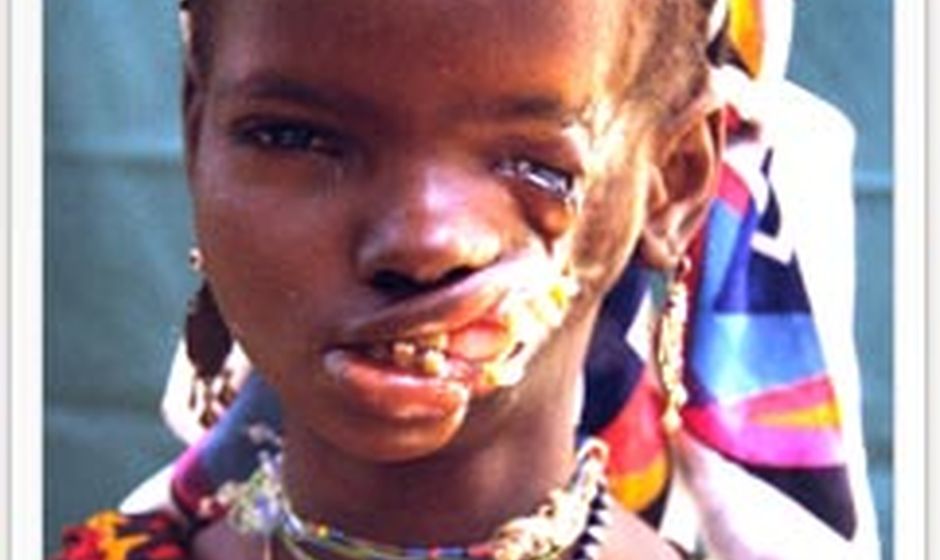We are a family business with two generations of love for Morocco. Our passion for the country and for helping others to discover it has fuelled our success in the market over many years...

Facing Africa is a registered UK charity that funds and organises teams of volunteer surgeons, anaesthetists, doctors and nurses who visit Ethiopia 2 - 3 times each year on two-week surgical missions to operate on children who have survived the ravages of noma. Each team achieves 50-55 facial reconstructions, thus giving 50-55 of the poorest people on earth a chance of a new face and a new life.
The victims of noma are usually under the age of 6 and the WHO estimates that 140,000 new cases of noma occur every year. Although noma can be cured in its very early stages with a mild anti-biotic, the children who get this terrible disease live in remote areas (mostly sub-Sahara) where they have no access to healthcare. Tragically, 90% of the victims will die within 3 – 4 weeks. Those who survive the bacterial infection will spend the rest of their lives in unimaginable pain, discomfort and social exclusion.
Each mission costs around £ 70,000 to fund. This is to cover the costs of flights, accommodation and meals for the volunteers as well as large quantities of drugs and medications, surgical instruments and equipment. Also a small local staff who spend the whole year locating noma patients in remote rural areas.
Noma (cancrum oris) is an acute and ravaging gangrenous infection affecting the face. The victims of Noma are mainly children under the age of 6, caught in a vicious circle of extreme poverty and chronic malnutrition.
Facing Africa - Noma provides funds for the visits of teams of voluntary surgeons from the UK, Germany and Holland to Nigeria and Ethiopia to perform facial reconstruction surgery on the victims of the disease noma, and the aquisition of related equipment for hospitals in Addis Ababa (Ethiopia) and Sokoto (Nigeria).
This short film, made in 2007 by the BBC Programme "Inside Out", provides an introduction into the disease, the charity Facing Africa and the work we are funding in Ethiopia.
Noma begins with ulcers in the mouth. If the condition is detected in the early stage, progression can be prevented with the use of mild antibiotics and immediate nutritional rehabilitation. If left untreated, as happens in most cases, the ulcers progress to Noma at an alarming pace. The next stage is extremely painful when the cheeks or lips begin to swell and the victim's general condition deteriorates. Within a few days, the swelling increases and a blackish furrow appears and the gangrenous process sets in and, after the scab falls away and a gaping hole is left in the face. It is estimated that the mortality rate reaches up to an alarming 90%.
Survivors, those whose pitiful faces can be seen on these pages, can arguably be described as the fortunate ones. However, their lives will never be the same and they will suffer three main afflictions - hideous facial disfigurement, functional impairment and social outcast.
The scar tissue restricts jaw movement and a child who survives is unlikely ever to be able to speak or eat normally again. In infancy, some children lose their lips and soon die of starvation, as they are unable to breast-feed.
The World Health Organisation (WHO) estimates that 140,000 new cases of Noma occur each year and of these, a mere 10% survive. That means that 126,000 die each year, mainly in sub-Saharan countries from Senegal to Ethiopia, a region known as "the Noma belt".
Susan d'Arcy from The Sunday Times travelled to Marrakech with Lawrence of Morocco in July 2012.
We really know Morocco and have had the pleasure of making many people's dream trips become reality over the years. It has been our privilege to be asked to manage holidays, weddings and productions for so many fantastic and discerning clients. We remain small and dedicated to providing excellent honest advice to enable you to sit back, relax and enjoy the fun bits without having to manage the unpredictability of this fascinating country.
If you want it done right, look no further!